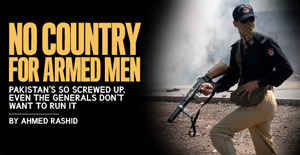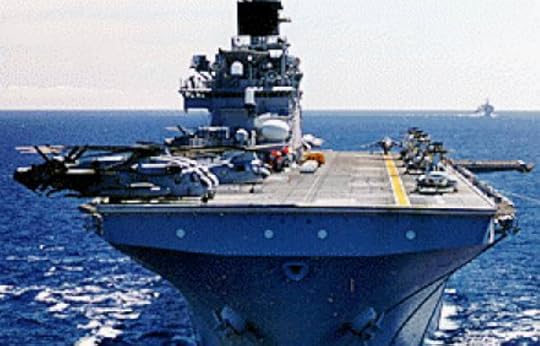Thomas E. Ricks's Blog, page 175
June 25, 2012
The Syrian shootdown of the Turkish jet

My first thought was that Syria
shot down the Turkish F-4 because the Turks were
probing Syrian air defenses. But then I remembered that the U.S. aircraft
patrolling the northern Iraq no-fly zone flew out of Incirlik, Turkey, which
meant that they zoomed along the northern Syrian border for years. We must have
learned an awful lot about Syrian operations, and shared almost all of it with
our Turkish friends, and other members of NATO.
So what more might there be
to learn? Probably a probe to see how much deterioration there has been in Syrian
defenses in the last year. But that
would be a good use of a drone, no? (And are we sure there was a pilot in that F-4?)
The Israelis clearly also
know a lot about Syrian defenses.
Meanwhile, Turkish jets conducted
air strikes in northern Iraq.
Interesting neighborhood.
June 22, 2012
Mini 6.22
A few words in defense of Colin S. Gray's essay on COIN and our future strategy

By Adam Elkus
Best Defense COIN respondent
Colin S. Gray's
recent article in Prism, when read in context with his
other works, reveals much about how an inadequate grasp of strategic theory
compromised the counterinsurgency debate. Tom
has graciously provided me space to elaborate on why Gray's corpus
is valuable
for American
defense policy
and strategy.
COIN as Concept Failure
It is pointless to argue, Gray claims, whether or not COIN
has failed or succeeded. This is because COIN is not a concept. Debaters argue for or against COIN, a position as ridiculous as
arguing about whether anti-submarine warfare is inherently good or bad. As Gray
observes, COIN is not an internally coherent set of ideas. It's just a
descriptor for what armies do to counter insurgents. If this sounds a bit
reductive, consider that the enormous losses suffered by the Allies at Cambrai
in 1914 did not constitute proof tank
warfare itself had failed, nor did decisive combined arms tactics in the
Gulf War prove that tank warfare was successful.
The merit or demerit in COIN "cannot sensibly be posed as a
general question." Insurgency has been a constant feature of strategic history,
and will likely continue to
be. Whether or not to intervene in another state's internal politics is a
question best left to historical circumstance and it is impossible to put forth
one policy solution that will hold for any and all cases. In any event, the idea
that one has a choice to engage in COIN is also a matter of context. Domestic
insurgencies always must be countered as a matter of basic political survival.
It is a category error to argue that COIN is inherently more
political than interstate war, as this implicitly uses a war's intensity as the
defining measurement of how much it is dominated by politics. All wars involve
the use of force for political purpose, are shaped by context, and feature two
forces seeking to impose their will on an adversary. In other works,
Gray has sensibly noted that the supposed differences between irregular and
conventional warfare are ultimately cosmetic. Categorizing wars according to
the predominant combat style of one or more of the belligerents leads to
analytical confusion. For example, the idea of "cyberwar" erroneously implies that combat
action will solely be limited to computer hackers volleying computer network
attacks against each other across the digital ether.
Weapons obtain meaning only through the strategic effects
they enable, making it difficult to categorize a war solely through military
technology. In American operations in Iraq and Afghanistan, conventional
platforms, skills, and specialties were used against primitive opponents -- and
tactical innovations pioneered there will likely play prominent roles in major
war. The spectacle of Canadian Leonard tanks firing on Taliban guerrillas and
the reverse engineering of counter-IED technology into tools for destruction
of conventional air defenses should be sufficient demonstration of the
arbitrary distinction between conventional and irregular challenges.
One consequence of this categorical confusion is the idea
that that one side's tactics and technologies should be defeated through
deliberate mirroring. Networks should defeat networks, governments and third
parties must out-govern insurgents, and so on. But there is nothing essential
to a given war's policy or strategy that demands a perfectly symmetrical
response. This is obvious when the enemy is a global terrorist organization -- no
one would argue the U.S. should carry out suicide bombings. It is less obvious
when the enemy is a guerrilla organization contesting control with a government
and a third party force. Counterinsurgents do not have to "out-govern"
insurgents simply because the enemy uses shadow governments for strategic effect.
The enemy does have a vote, but that vote should not unnecessarily narrow
counterinsurgent strategy.
COIN and Strategy
Gray's previous works have emphasized that although the
logic of strategy is timeless, strategy in practice defies the American obsession
with definitive principles of war. Context rules all, and principles of war are
in reality only principles of warfare
valid for certain temporal, political, cultural, and material circumstances.
The only principles of war that truly
survive are so general as to be practical
nubs: war is a political act conducted for political purposes, war is a
cultural undertaking, etc.
The COIN debate has essentially been a tireless search for
eternal principles. But this debate, as Gray, David Kilcullen, Sebastian Gorka
have all argued,
rests on a tiny sliver of contemporary military history. Insurgencies differ
radically according to context in strategic history, and dependence on a small
set of cases (Algeria, Vietnam, Malaya) exacerbates the already Sisyphean
search for principles of COIN warfare. A universally "right" way to conduct
COIN does not exist, not least of which because the idea supposes a Platonic
ideal that can be divorced from political and cultural circumstance. Gray argues that the sheer diversity of
phenomena herded under the common moniker of "insurgency" inherently creates a
plurality of strategic methods that can guide COIN tactics.[[BREAK]]
The diversity of strategic approaches to dealing with
insurgency, Gray points out, means that "best practices" can only be realized
on the level of tactics. As Gulliver of Ink Spots observed,
all armies need to know how to shoot, move, and communicate. Even then, the
usefulness of tactics is contingent on how they enable strategic effect
determined by policy. There are tactical best practices for countering
insurgencies utilized by other powers that American policy has determined to be
out of political bounds. Other governments will reject tactics for what may
seem like completely arbitrary reasons to Americans. The dispute between the U.S.
military and the Afghan government over night raids in Afghanistan is a case in
point -- a tactically sound approach that favors an American strategic objective
may not serve Afghan national and personal interests.
Gray echoes Joshua
Foust and other regional analysts of Afghanistan in noting that discussion
of COIN within the context of current operations has really been a provincial
debate over American COIN doctrine. Policy
and strategy, which by necessity are formed by the conversation between
national interest and regional knowledge, sadly emerged only as adjuncts to
theological debates about COIN tactics. Doctrine is important, but even
successful doctrine is too narrow a prism to look through when examining war.
Gaining Strategic Advantage
What does Gray's view of strategy have to say about how
America should understand the business of winning (or losing) wars that feature
COIN? First, a basic truth of strategy is that it deals with, but is not ruled by, warfare. States can
sometimes win war by dominating the warfare, but this is not always the case.
The Israelis arguably won the warfare in 1973, but the strategic shock
inflicted by the Egyptian assault had far-reaching political effects. Likewise, the Chinese performed poorly
in the 1979 Sino-Vietnamese conflict but still rattled
the Vietnamese enough to gain the Chinese political object. Finally, as the
United States discovered at the end of the 1991 Gulf War, even victors do not
always gain peacetime objectives they seek. And success always has some kind of
unintended consequence. Above the tactical level, an objective concept of
victory does not exist. Victory and defeat are governed by only by political
context.
All this is also true of counterinsurgency. Strategy is
enabled by tactics, and military defeat of insurgents does not guarantee
strategic defeat because the physical ability to annihilate them requires a
degree of decision that small-scale counterguerrilla operations cannot always
provide. The Chinese communist ability to survive numerous encirclement
operations in the Chinese civil war, coupled with their greater faculty with local
deal-making among powerful elites, enabled them to survive and eventually
outgrow their nationalist enemies. As Lukas Milevski observed,
battles make up the raw material of warfare but do not necessarily equal the
whole of war. Hit-and-run attacks, sabotage, targeted killings, battle
avoidance, and raw attrition are not chivalrous but also inflict important
physical and psychological losses. The story of guerrilla warfare is mostly
(but not always) a story of erosion. The victor is often the one still left standing.
While guerrillas can sometimes win through strategies of
erosion, so can governments. Destruction of enemy resources, safe havens, and
population control as a means of restricting enemy movements are all ways
governments impose cumulative material, psychological, and political costs on
insurgents. Through controversial, intelligence-based leadership targeting, the
use of "pseudo-gangs,"
and informers are all part of the toolbox governments and their allies use to
gain some measure of control over
the adversary. And control -- gained either through erosion or decisive warfare -- is
crucial to success in COIN. The public are not just spectators to warfare in
COIN, and control is one of the various means governments and insurgents use to
gain support and legitimacy.
Perception, Legitimacy, and Politics
"Legitimacy" should not necessarily be understood solely as
a synonym for "consent of the governed." Rather, legitimacy can have a variety
of meanings among various audiences. But one side's staying power is crucial to
local perception of legitimacy. Gray's most important point is that success in
COIN is not likely if prior or parallel nation-building is a
precondition for victory. Analogies to nation-building in Europe and Asia miss
the point: many of the most successful efforts occurred after a great deal of
bloodletting to gain physical control. Control enables police to create order,
tax collectors to receive revenues, and institutions to be built. And even then
the outcome is not guaranteed. The Union military overawed the South but prewar
political and cultural institutions reasserted themselves with malicious energy
during Reconstruction.
COIN efforts can be crippled by bad politics, but COIN also
suffers when physical control cannot be exercised. While military effects can
sometimes gain political decision, it does not follow that political work can
always compensate for military failures. Tactics must serve strategy, but the
converse is that strategy without sound tactics is also dangerous. One Afghan
example that Gray repeatedly returns to is the failure to destroy the enemy
sanctuary in Pakistan. Strategic defeat of insurgents is impossible without
tactical actions to neutralize the major source of their political power: the
perception they can and will outlast their American adversaries in a war of
attrition.
Perceptions in Afghanistan rest on material realities. The
Taliban are unlikely to perceive themselves to be defeated if they can
regenerate their power in secure sanctuaries. And as Foust suggests,
Afghans are unlikely to be convinced of government staying power if the Taliban
can consistently mount terrorist operations around the pinnacle of Afghan and
Coalition political power in Kabul. It is true that defeat in the battle of
perception can raise the cost of coercion. But good works do not guarantee
cooperation, and accidental cultural gaffes and collateral damage do not
inherently lead to conflict. In fact, sometimes the opposite can occur in both
cases. Why? The behavior of populations in war is motivated by a variety of
factors that include political mobilization, sectarian and family loyalties,
safety, and material interest. Outside forces must deal with these motivating forces but should not assume they can
easily alter them.
The challenge, as in any other kind of war, is to use force
in a manner that enhances rather than detracts from control. This does not mean
assuming that the population is the center of gravity. Taking the human terrain
into account is simply smart politics, something armies and their political
masters should always be cognizant of. Insurgents are successful when they use
existing political forces to their advantage, but governments can also do so
even in when they are unable to obtain consent. Israeli military and civilian
intelligence efforts rest in large part on extensive
exploitation of political and social friction between Palestinians.
Consequently, a popular uprising defeated Hosni Mubarak because he lost control
of Egyptian elite politics.
Finally, as Gray notes, if tactical setbacks cannot be tactically rectified, the problem is the
policy or strategy rather than cultural awareness or COIN deficits. If a
general or a politician cannot solve the problem caused by a "strategic"
corporal, it is not primarily the enlisted man's fault that the war effort
collapsed. In Somalia, the tactical disaster of Mogadishu
would not have mattered if the war had greater support in American domestic
politics. Once the war shifted from a humanitarian operation into military
operations, a gaping hole in the "strategy
bridge" left the entire structure vulnerable to fog and friction and enemy
adaptation.
Conclusion
Gray's essay is first and foremost a plea for COIN theorists
to consider the canon of strategic literature and human experience beyond Iraq
and Afghanistan. We ought to carefully reflect on his words before we find
ourselves encountering the same problems on new military frontiers. Strategic
theory will not guarantee victory, but it can help us shed illusions about what
force and persuasion can and cannot achieve.
Adam Elkus is a PhD student at American University. He
blogs at
Abu Muquwama
,
CTOVision
and
Information Dissemination
on
strategy, technology and international politics.
Rebecca's War Dog of the Week: Navy handler Sean Brazas laid to rest and saying goodbye to MWDs Nina and Paco
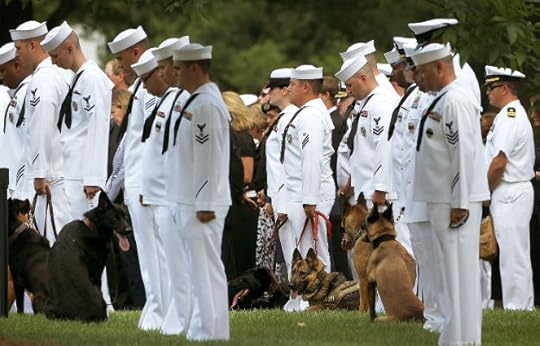
By Rebecca Frankel
Best Defense Chief Canine Correspondent
MA2 Sean Brazas, who was
killed in action in Afghanistan on May 30th, was laid to rest this week at
Arlington National Cemetery. Earlier in the week, family and friends from his
hometown in Greensboro, NC gathered for a memorial service. His high school
also paid tribute,
flying its flag at half-mast.
Brazas's parents and sister spoke
to a local news team about their son -- who leaves behind his wife and their
13-month old daughter -- and how proud they were of him. "If I could turn out to
be half the man..." his father started before stopping to regain his composure.
"He got to be married and have a family, just not long enough... At the end of
the day you want your kid back, it's that simple."
Two other fallen servicemen were remembered in a memorial
service held on June 1, on a military base in Afghanistan -- MWDs Nina and
Paco. Both of the dogs' handlers got up and spoke about their fallen partners.
Sgt. Adam Brown, Paco's "one and only handler," said, "There's only a few times
in my life that I've come across an opportunity that's changed my life, Paco
was one of those opportunities." Nina's handler Sgt. Daniel Wilker said he knew
the two shared a special connection when Nina accidentally bit him one of the
first times they trained together. "She laid next to me and had this look on
her face that she was so sorry."
Among the mourners at Arlington National Cemetery and among those
gathered to pay respects in Afghanistan, were fellow canine handlers and their
dogs.
Rebecca Frankel, on leave from her FP desk, is currently writing a book about military
working dogs, to be published by Free Press.
The Rumsfeld-Adelman feud

One of the more interesting relationships in DC is the
running battle between Donald Rumsfeld and his former aide and friend Ken
"Cakewalk" Adelman. As I recall, it went public when Adelman, once a very loud
Iraq hawk, began questioning the Bush
team's conduct of the Iraq war around 2006. For example, he said of the
Bush administration's national security officials that, "They
turned out to be among the most incompetent teams in the postwar era. Not only
did each of them, individually, have enormous flaws, but together they were
deadly, dysfunctional."
The
feud recently surfaced again in the letters section of the Wall Street Journal. One letter this week began, " Ken Adelman's rebuttal (Letters, June
18) of Donald Rumsfeld's June 13 criticism of the United Nations Convention on
the Law of the Sea repeats two persistent myths about this deeply flawed and
unnecessary treaty . . . . "
This may seem an
obscure fight between figures of the past, but could be relevant if Mitt Romney wins the presidential election. He strikes me as the kind
of guy who would think it would be great to have Rumsfeld around as an elder
statesman.
June 21, 2012
Don't just get rid of West Point as a 4-year college, get rid of ROTC, too
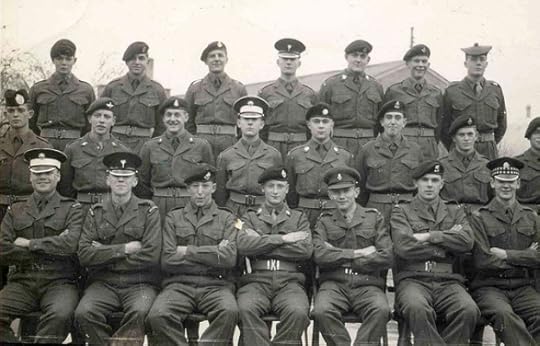
By “Townie76”
Best Defense guest provocateur
Three years ago, Tom proposed shuttering West Point as an expensive anachronism. At the time I thought he was barking up the wrong tree, but after reflection upon my own career as an army officer, I think he is on to something. It is not just West Point that should be done away with, it is also ROTC that should go.
Before anyone get's their panties all knotted and wadded up, let me be up front: I am a product of ROTC, and I attended one of the "senior military colleges" -- the Virginia Military Institute. What I am proposing will have an impact on my alma mater, as well as the other "senior military colleges."
I think that America's fiscal resources could be better utilized in the following manner:
1. Those interested in commissioning would enlist in the armed forces, attend basic training, and advanced individual training. They would then be assessed into an officer development program and transferred to the National Guard or Reserves and receive a scholarship that would pay tuition, room and board, and books and laboratory fees at the college or university of their choice. While they could major in any subject they choose, they would be required to complete required courses as part of their development program.
2. They would have four years to complete their degree.
3. They would continue to drill with their assigned National Guard or Reserve unit.
4. Upon receiving their degree they would then proceed to the campus of the USMA at West Point (Naval Academy for USN & USMC; Air Force Academy for USAF) where they would undergo a year long course of instruction and evaluation leading to commissioning. It would be comprised of tactical and academic instruction along with extensive field operations where they would have to demonstrate their mastery of tactics and their leadership ability.
During the year they would receive not only academic evaluations, but also evaluation of their leadership ability through 360 degree assessments. The last three months would be an extended field exercise equivalent to "Ranger School" which all would have to satisfactorily complete in order to be commissioned. At any point up to the day of commission they could be dismissed from the program for academic, conduct, or leadership failures.
5. Once a year the army (navy and marine corps; air force) would commission all the officers of that years cohort of officers of the line. Some would be detailed to the Reserves and National Guard to fulfill their mandatory commitment of 10 years of commissioned service. All would be required to serve a total of ten years as a commissioned officer which could be divided between the active and reserve components.
6. Those who failed to complete their assessment for commissioning would be inducted into the regular army where they would serve for four years until such time they paid back their "college assistance."
It is my humble opinion I would have been a better Lieutenant and a better officer if I had I gone through a "Sandhurst"-like program.
My plan would guarantee that everyone had an appreciation what it was to be "the last man, in the last squad, of the last platoon." Moreover, it would level the playing field, everyone would have the same date of rank and where one went to college would not matter. Most importantly it would give us well-rounded officers who were connected to society and not isolated from it.
After graduating from the VMI, “Townie76” served in both the active and reserves, retiring as a colonel.
A good Army officer goes bad? Or slides back to his old ways? Either way, it's sad

Capt.
Charles Eadie, a previously enlisted soldier who graduated near the top of his West
Point class in 2007, and then went
to the London School of Economics, was busted and charged with selling
anabolic steroids to an
undercover police officer in Columbus, Georgia. He has pleaded not guilty.
Here is
an interview he did about his career when he was deployed to
Afghanistan in 2010. In it, he mentions that he had a "troubled past" and
actually was on probation when he first tried to enlist. "There is definitely a
darker path that I could have taken in life," he says, somewhat ominously.
You BD
hardasses probably all want to throw the book at him. Maybe I am just a softie
but I wonder if he was trying to feel the thrill of living close to the edge, a
bit of the adrenaline of combat.
Why you all were wrong about McGurk
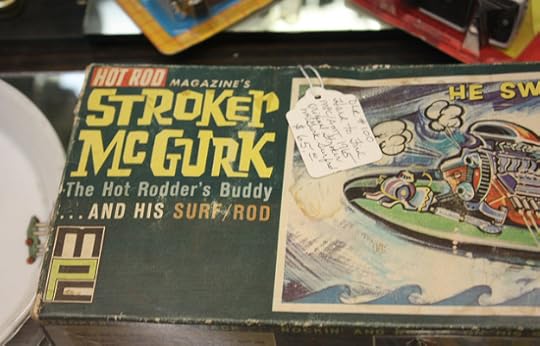
I was surprised when you all wrote so many comments disagreeing with me on Brett McGurk's nomination to be ambassador to Iraq.
Now Fred Kaplan comes forward to explain why you all were wrong.
June 20, 2012
Back to 'Black Hearts': Why this book stands out so much as a study of the Army
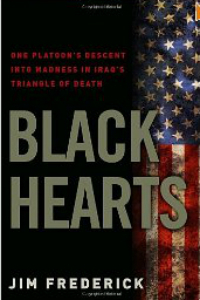
By "PKL"
Best Defense guest explicator
Another damn army scandal, another damn book about it; worse, a book
with a lurid title: Black Hearts, and an even more
lurid subtitle: One platoon's
descent into madness in Iraq's Triangle of Death. War weariness
and a proliferation of books about individual actions in Iraq and Afghanistan
seem to have left this book in publishing's
no man's land: number 286,309 in the Amazon hit parade this month. Hard to
understand why more than a quarter million other books at Amazon outsell it.
This seems a pity. Black Hearts is the battle name adopted by the 1st battalion, 2nd brigade combat team, 101st Airborne.
The book by senior Time magazine editor Jim Frederick is described by senior
British war and military correspondent Max Hastings as matching In Cold Blood, Truman
Capote's 1965 account of the murder of the Clutter family on their farm in
Holcomb, Kansas. Three Black Heart soldiers murdered the Iraqi al-Janabi family
of Yusufiyah, a father, mother and six- and 14-year-old daughters. The cousin
who found their corpses in March 2006, demented by grief and his desire to
offer some propriety to the scene, snatched a kettle and ran back and forth to
a nearby stream, gathering water to put out the fire that had consumed every
part of the 14-year-old's upper body, other than her fingertips.
As Frederick recounts matters, the army was called in minutes later,
and contrary to physical evidence on the scene, was content to attribute the
crime to other Iraqis. Then a Black Heart's conscience started to trouble him
and the reality of what happened to the al-Janabis came to light. Those who
entered the house and killed them were prosecuted and in his masterwork,
Frederick sets the incident in the context of army administration as it was in
2006.
Why his book is a masterwork, its ten-page foreword makes clear.
At sundry officer levels, the 101st's leading edge units
were administered in an atmosphere of public insults and sarcasm. 1000 men were
required to do the work that by 2008 was being done by 30,000, and those lonely
first thousand were bleeding heavily. Black Hearts platoons lost their leaders
to enemy action one by one; three months after the al-Janabis died, three
Americans were overrun by insurgents. One died during the battle. The survivors
were later mutilated, beheaded and their bodies were booby-trapped.
In Tokyo, having read reading brief wire service reports about the
al-Janabi family's deaths and the later small battle, Frederick, then Time
Magazine's bureau chief in that city received a phone call from army captain
James Culp, a former infantry sergeant turned lawyer who had been assigned to
defend one of the three Bravo Company men accused of the Yusufiyah atrocity. He
wanted Frederick to come as a reporter, "if not for the sake of my client, then
for the sake of the other guys in Bravo." He did, and later, he gained
assignment to Iraq both as a reporter and, in time, in preparation for what
turned out to be his book.
His research occupied much of the next three years, and what marks the
difference between Black
Hearts and most other books
on similar subjects was that he started contacting101st men to see if they were
willing to talk. Surprisingly, they were.
Frederick writes: "Despondent over being judged for the actions of a
few criminals in their midst, they were eager to share their stories ... They
were generous with their time, unvarnished in their honesty ... arguing that I
could not properly understand the crime and the abduction if I did not
understand their whole deployment.
"[As well,] I could not understand (the errant) 1st platoon if I did not understand 2nd and 3rd platoons, who had labored under
exactly the same conditions but who had come home with far fewer losses and
their sense of brotherhood and accomplishment intact."
In some cases he interviewed individual veterans repeatedly, building
a history, scaffolding it with context. He spoke to relatives of the al-Janabi
dead and attended the trials of the men charged with killing the little family.
He used the Freedom of Information Act to obtain reams of official documents.
"Every opened door led to a new one," his foreword recounts. "Most
soldiers and officers I talked to offered to put me in touch with more. Some
shared journals, letters and emails, photos ... classified reports and
investigations."
Honorable men. The heart and sinew of Black Hearts is those few sentences. The conclusion
of this multidimensional examination of army practice is its head. So also is
its conclusion: "I had thought that the Army way was for everyone to accept a
small piece of the responsibilities for any debacle truly too big to be of one
man's making ... [and so,] make the fiasco something that the army could study
and learn from. But the ordeal generated so much bile and rancor for so many
people that the army seems more interested in forgetting about the tragedy
entirely, than in ensuring that it never happens again ...
"[M]any men feel that blame was unfairly pushed down to the lower
ranks and not shared by a higher command they believed was also culpable."
The ten-page foreword is a clear and fair introduction to the rest of
the book's contents.
Those closing remarks match what General Antonio Taguba told West
Point in an oral history
interview available on the web. If you question Frederick's conclusions as
reported in his book, ponder the calm and confident retired general telling his
interviewer that his investigation of Abu Ghraib satisfied him that army abuses
there were widespread through Iraq, and that, given permission to do so, he
would certainly have sheeted home some responsibility for them to general
Ricardo Sanchez, V Corps' 1st
Armored Division commander
when those abuses were in flower.Keep in mind also that Frederick was writing down his conclusions before
the 5th Stryker
murders of Afghan civilians were widely known, and before this year's Panjwali
massacre, in which 16 Afghan peasants were killed. All these actions were
performed either by an individual or a very small and aberrant criminal group.
Virtually all other soldiers despise them. And, as Frederick suggests, their
recurrence suggests the army isn't very good at forestalling future such
outbreaks, staining as they do the name of an entire military arm of this great
nation.
Keep in mind also that Frederick was writing down his conclusions before
the 5th Stryker
murders of Afghan civilians were widely known, and before this year's Panjwali
massacre, in which 16 Afghan peasants were killed. All these actions were
performed either by an individual or a very small and aberrant criminal group.
Virtually all other soldiers despise them. And, as Frederick suggests, their
recurrence suggests the army isn't very good at forestalling future such
outbreaks, staining as they do the name of an entire military arm of this great
nation.
Skipper of USS Essex dumped the old school way: For lousy ship handling
Thomas E. Ricks's Blog
- Thomas E. Ricks's profile
- 436 followers


